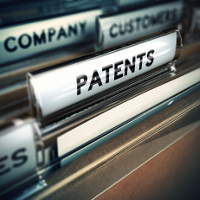The following post comes from Colin Kreutzer, a 2E at Scalia Law and a Research Assistant at CPIP.
 By Colin Kreutzer
By Colin Kreutzer
This past fall, the United States Patent and Trademark Office (USPTO) hosted a joint workshop with the Department of Justice (DOJ) entitled Promoting Innovation in the Life Sciences Sector and Supporting Pro-Competitive Collaborations: The Role of Intellectual Property. Read more
 By Yumi Oda
By Yumi Oda By Tabrez Ebrahim
By Tabrez Ebrahim By Colin Kreutzer
By Colin Kreutzer By David Ward
By David Ward CPIP has published a new policy brief by CPIP Senior Fellow for Innovation Policy Jonathan Barnett entitled
CPIP has published a new policy brief by CPIP Senior Fellow for Innovation Policy Jonathan Barnett entitled  By Yumi Oda
By Yumi Oda